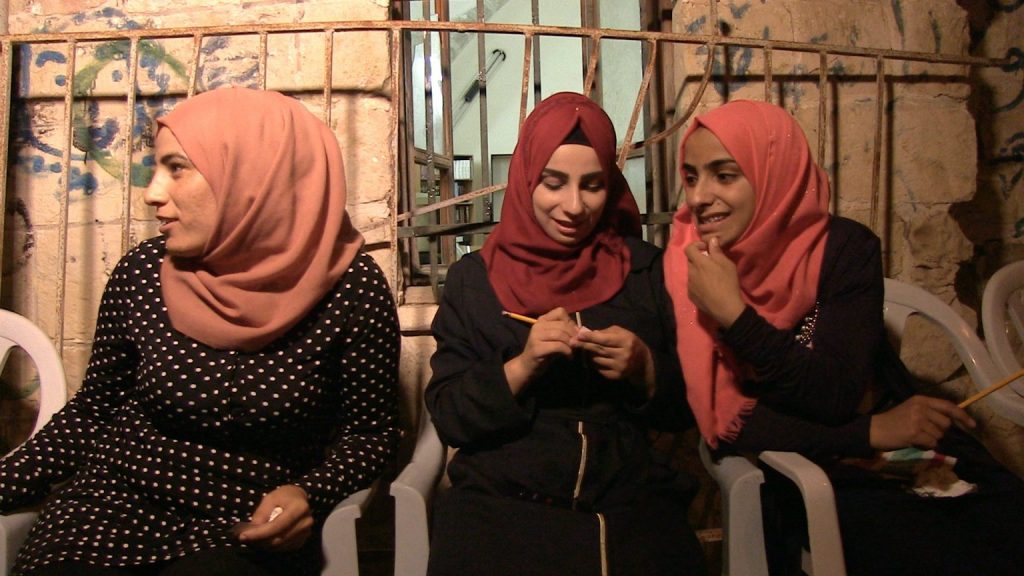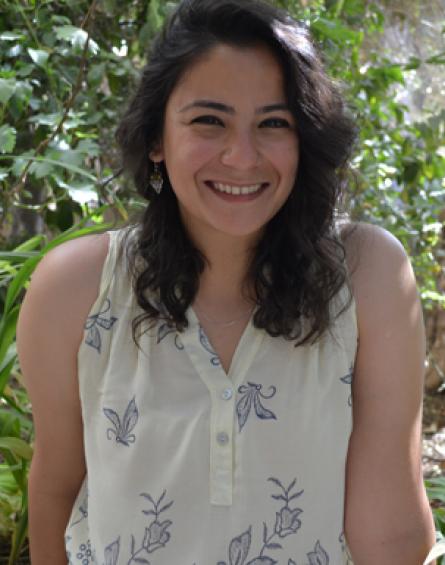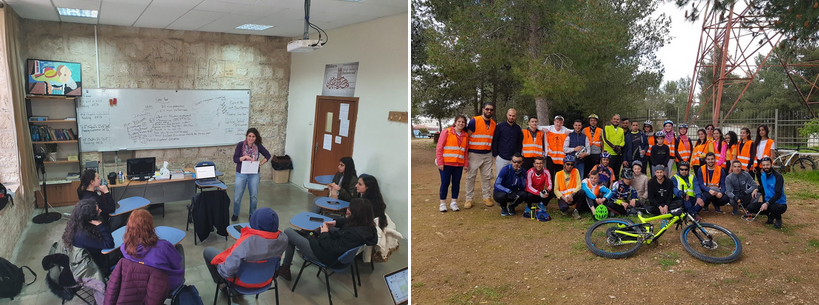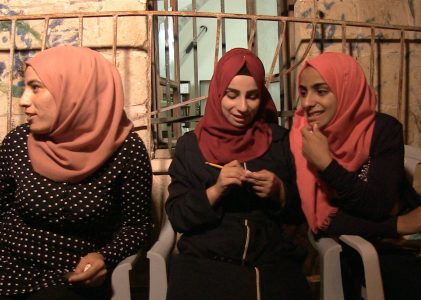
In this series of interviews, we will be introducing you to the lead partners involved in the Giving for Change programme! The five-year, €24 million programme will be implemented in Brazil, Burkina Faso, Ethiopia, Ghana, Kenya, Mozambique, Palestine and Uganda, and is led by a consortium of four organizations: the Africa Philanthropy Network, Kenya Community Development Foundation, GFCF and Wilde Ganzen. The aim of Giving for Change – part of the Dutch government’s ‘Power of Voices’ programme – is to foster local giving as an expression of voice, civic participation, solidarity and dissent. The programme will build evidence around new thinking, approaches and leadership that support community philanthropy development.
In this interview we speak with Lina Ismai’l, Community Programmes Officer at Dalia Association; a community foundation in Palestine whose mission it is to mobilize and properly utilize resources necessary to empower a vibrant, independent and accountable civil society, through community philanthropy and community-controlled grantmaking.
What does community philanthropy currently look like in Palestine?

Lina: Community philanthropy is embedded within our culture and we call this practice of community giving Al Ouna (”aid” in Arabic). It basically started with us as an agrarian society: people would help each other during the harvest season. This is something that also happens around certain social occasions – for example when people offer support for a wedding, or support a person building a home. This kind of philanthropy is something that is embedded within the Palestinian culture and has been there for many years. Historically, this level of solidarity was seen when we had the Palestinian uprising or Intifada in 1987. The first and the second Intifada saw people coming together to free themselves from colonization. Health and educational committees were also formed in different neighborhoods to help each other during the Intifada.
At Dalia, we have specific funds that are aimed at supporting communities. For example, we have the education and farming funds, through which Dalia offers a specific amount of money, and the community contributes to the same funding “basket.” Our funds are not restricted to education and farming only. When an individual is interested in a specific theme, they are welcome to approach Dalia and to contribute towards the establishment of such a fund. A local community committee then decides how the fund is distributed.
What does #ShiftThePower mean to you/your organization?
Lina: #ShiftThePower means that people get to decide and control their own developmental processes. It is about communities taking an active role as citizens in the country to drive social change and to lead development. As people under colonization, our aim is to see how we can be supportive in solidarity of each other and in the end reach liberation, of course. The development process within our context is controlled and run by other people – that is why our mission is to mobilize people to respond to their own needs. (Check out Dalia’s “Visual journey of shifting power” on the #ShiftThePower Treehouse.)
How will the Giving for Change programme help to advance the community philanthropy field or #ShiftThePower in Palestine?
Lina: We are supporting youth initiatives that tackle pressing issues within communities through the provision of financial and technical support. In the process, the youth start realizing that they have the power to lead their own development rather than just waiting to be engaged. We focus on awareness raising and knowledge production which is related to studies about the legal environment here in Palestine. We hope to work on other studies that are related to spreading awareness on the importance of community philanthropy and how this model should be adopted. We are also thinking of starting an alliance with other organizations to fundraise from Palestinians in the diaspora, or entities and people in solidarity with Palestine – thus raising awareness about what is happening here. For example, raising awareness about the importance of community philanthropy versus the traditional, conditional donor funding. In this way we are also advocating for shifting power, as people get to decide and control their own development rather than just receiving funding that is conditional.

How can the Giving for Change programme help encourage donors / INGOs to really shift power and resources closer to the ground?
Lina: It is important to provide concrete examples of community philanthropy models that exist at the grassroots level. We need to show how people come together and fundraise locally to support their own development without waiting for external funds. Beyond finances, communities need to rely on local and natural resources for practices like farming. Secondly, raising awareness about how community philanthropy should be revived in our context could help shift power or influence donors. Then comes the advocacy and lobbying efforts through dialogue with donors. For example, at Dalia, we will engage in a discussion with donors about how to fund projects in a way that answers the needs of people. We also have a study that we are launching about the reality and status of farmers in water areas in the Gaza strip from a food sovereignty perspective. We want donors to understand that they cannot bring an “already made project” with an “already made agenda” solely developed through external inputs.

How has aid undermined local giving practices and what can the Giving for Change programme do about that?
Lina: Aid has undermined our culture of giving which has seen people becoming more individualistic, more scattered and more competitive. Communities have been made to think that foreign perspectives or interventions are the best for responding to their challenges. They only look at themselves as receivers of grants. However, we live in a context where we need to be producers of what we consume. When we tackle challenges using an export-oriented approach, this just further segments Palestinian society. You will see that people working for big donor organizations or INGOs have high standards of living and that they are very much detached from the reality that we live in as “normal” Palestinians. There is also the element of existing in a globalized world – a mentality has developed that we should all be modern and westernized.
Interview conducted by: Tarisai Jangara, GFCF Communications Specialist

